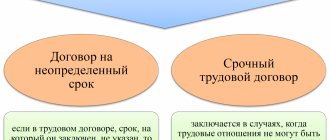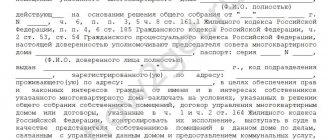Home / Government procurement / Federal Law 223
Back
Published: September 20, 2018
Reading time: 8 min
0
744
The procurement commission is a panel of specialists created by customers in accordance with Federal Law-223 in order to solve certain problems. The direct question of the formation, operating procedure of the procurement commission, its functions and area of responsibilities is not provided for.
- Purchasing commission: how is it appointed
- Composition of the commission and powers of its participants
- Functions and work procedure of the procurement commission, its rights and responsibilities
- Documentation of the work of the procurement commission
- Responsibility of commission members
Purchasing commission: how is it appointed
According to Part 1 of Art. 2 FZ-223, when purchasing goods and services, customers must be guided not only by this law, but also by other legal acts: the Constitution, the Civil Code and other federal laws.
There is no direct indication of the need to create a procurement commission in 223-FZ. But the Civil Code has a corresponding article (447), which states that the winner of the competition can be a participant selected by decision of the commission. Therefore, at a minimum, when conducting procurement activities through a competition, such a commission should be created.
According to Part 2 of Art. 2 FZ-223, the procurement regulations are a document regulating the customer’s procurement, and which must contain procurement requirements, the procedure for preparing and conducting procurement procedures and the conditions for their application.
Thus, it is the Customer’s Regulations that must contain the regulations for procurement activities, the procedure for creating a commission and the requirements for its members (in particular, with regard to education and the number of members).
The commission can be created for various reasons . For example, from the perspective of the subject of procurement, it is permissible to create a separate commission for the procurement of inventory items or research work. From the point of view of the procurement procedure, there are: competitive, quotation, auction and other types of commission. From the point of view of the duration of the commission, a distinction is made between permanently functioning and temporary ones created for a specific purchase.
Procedure for appointing a procurement commission
Part 1 of Article 2 of Federal Law No. 223-FZ states that when carrying out all existing procurement activities, the customer is obliged to use not only the specified Federal Law, but also those regulations that also exist on the territory of the Russian Federation. All Regulations on ongoing procurement are drawn up on the basis of the above-mentioned federal normative act, as well as on the basis of the Constitution of the Russian Federation, the Civil Code and by-laws specially adopted in pursuance of their provisions, in particular, Resolutions of the Government of the Russian Federation.
As mentioned above, the specified federal regulatory act does not contain a direct instruction to customers about the need to create such a commission, however, if we turn to the provisions of the Civil Code of the Russian Federation, then in accordance with Part 4 of Article 447 of this regulatory act to determine the winner of procurements carried out in form of bidding, it is necessary to assemble a special evaluation commission. Thus, the customer is obliged to create at least a competitive procurement commission in order to comply with the requirements of civil legislation regarding the procedure for determining the winner of the competition, as a method of determining the executor under a contract or agreement.
The rules for convening a procurement commission in each specific case are established by the customer independently within the framework of the Regulations on Procurement Activities or within the framework of a specially published independent document regulating the entire activity of such a commission.
As part of its procurement activities, the customer has the right to convene a single commission from among employees who have a sufficient level of qualifications to work in such a commission (including those who have undergone special training to carry out such participation), or for each specific type of procurement used, create its own commission with its regulatory documents.
The same rule applies to the period of operation of the created commission - at its discretion, the customer has the right to create a permanent commission or convene it for each procurement, but in compliance with the requirements of existing legal norms in the field of state and municipal procurement. All features of such functioning must be reflected in the Procurement Regulations, as well as in the regulatory documents of the procurement commissions themselves.
Composition of the commission and powers of its participants
The customer can create a procurement commission under 223-FZ according to the rules specified in 44-FZ.
The commission may include not only company employees, but also third parties. At the same time, it is allowed to engage independent experts only under an agreement indicating the rights, duties and responsibilities of the persons involved.
Traditionally, the following groups of participants in the commission are distinguished:
- Chairman of the purchasing committee . He carries out general management of the commission, conducts its meetings, appoints responsible members of the commission (for example, for opening envelopes), announces information required for announcement, conducts rebidding, determines the procedure for considering received issues, and brings up for discussion the issue of involving experts in the work.
- Deputy Chairman , who performs the functions of the chairman in his absence.
- Ordinary members of the commission . Their tasks include familiarization with the materials of the ongoing procurement, making a decision on its compliance with the rules and Procurement Regulations, forming an opinion regarding the admission or refusal of admission of a procurement participant, assessing and comparing applications from procurement participants.
- Secretary of the commission . He keeps minutes of meetings, informs members about the agenda, organizes technical support for meetings, informs about the need to replace commission members, and promptly sends materials on the agenda items to commission members.
The number and composition of the commission is determined at the discretion of the customer. It is recommended not to expand the composition of the commission too much and form it on the terms of an odd number of participants with voting rights (for example, 3 or 5 people). This may make sense when it is necessary to make collegial decisions by a majority vote.
When determining the composition, it is worth including in the commission members persons with a profile adequate to the procurement being carried out (for example, with special education or skills).
Also, the customer should take care of the reserve composition of the commission in advance . The persons who receive the rights and duties of members of the commission in the absence of the main composition should be indicated here.
Functions and work procedure of the procurement commission, its rights and responsibilities
The regulations on the work of the procurement commission must contain its definition, a list of tasks to be solved, goals and functions assigned to it.
The purpose of forming a procurement commission is to determine the winner of the purchase, with whom the contract will be signed by the customer in the future.
To achieve this goal, the procurement commission is assigned the following functionality:
- Reviewing applications from participants for compliance with notification and documentation requirements.
- Selection of the procurement winner in accordance with the procedure specified in the procurement documentation.
The basic principle of the commission’s work is collegiality. It allows you to increase the objectivity of decisions made.
The purchasing commission may be vested by the customer with the following rights:
- Make a decision to postpone the procedure.
- Answer questions received from procurement participants regarding procurement documentation.
- Request clarification regarding the provisions of applications from participants.
- Involve experts to evaluate and select the winner.
- Make a decision on admission or refusal of admission of a participant.
- Correct errors in applications from participants in the prescribed manner.
- Conduct negotiations with participants.
- Make decisions about rebidding.
- Analyze the received expert opinions and assessments from the participants.
- Make a decision on selecting the winner of the procurement , refusing to carry out the procurement, or removing the participant from participation in the procurement.
- Coordinate changes in contracts concluded based on procurement results.
- Preliminary approval of notices and procurement documentation.
- Make a decision to complete the procedure without choosing a winner.
- Perform other functions provided for by regulations and organizational documents.
Work procedure, main functions, rights and responsibilities
All decisions made by the commission must be formalized in the form of a special document - a protocol. If for some reason the meeting of the commission was not recorded, it is considered illegitimate, and the customer may be found to have violated the current legislation in the field of procurement,
In addition to the above rule, for the functioning of a procurement commission from a state or municipal customer, within the framework of a special provision, the goals that must be achieved in the process of the work of such a collegial body are indicated.
The main goal is to determine the winner of a particular procurement procedure and sign a contract or agreement with him to meet the needs of the customer himself or his subordinate organizations.
The key functional responsibilities of the commission are:
- checking documents received as part of applications for participation from potential contractors under contracts and agreements for compliance with the declared procurement documentation and the current legislation of the Russian Federation;
- determination of the winner of the procurement based on the final assessment of the submitted application documents.
All decisions in the commission can only be made collegially, which significantly influences the improvement of the assessment of submitted applications, from the point of view of objectivity.
In the event that one of the members of the commission speaks out against the decision that is made by the entire composition, he must justify his position, and such justification is included in the minutes of the meeting.
The procurement commission has a number of its rights, which the customer delegates to this collegial body, reflecting them in the adopted regulatory documents on procurement activities:
- the right to make decisions related to the possibility of postponing the timing of certain procedures , if such a postponement is necessary and advisable from an economic and production point of view, and does not disrupt the timing of the development of allocated budget funds;
- the right to prepare and bring to the attention of potential participants in tender procedures answers to questions received from them regarding the content of procurement documentation;
- the right to request clarification from procurement participants regarding the documents that were submitted as part of the application for participation in such procurement;
- the right to attract experts , including from outside, if such involvement is necessary for an objective assessment of submitted applications and the subsequent determination of the winner of the procurement procedure;
- a particular participant to participate in a procurement event
- the right to correct errors that were made in their applications by potential participants, if such correction does not contradict the rules for carrying out procurement activities of the customer and current legislation;
- the right to negotiate with those procurement participants with whom such a process is necessary to determine the position in relation to the ongoing procurement;
- the right to decide on the use of the rebidding mechanism;
- the right to conduct analytical activities in relation to the expert opinions received on the submitted materials and documents as part of the application for participation , as well as in relation to those assessments that were received from participants on certain issues of the procurement processes;
- the right to make decisions on which of the procurement participants can be recognized as its winner , or on the possibility of refusing to conduct such a procurement or on the possibility of removing a certain participant from participation in such a procurement if violations on his part are detected;
- the right to agree on changes made to contracts concluded as a result of procedures assessed by such a commission;
- the right to preliminary approval of prepared notices and documentation in relation to potentially ongoing tender activities;
- the right to make a decision on the completion of a particular procurement procedure without final determination of the winner;
- other rights that may be provided for by the customer in the regulations on the activities of the procurement commission , as well as in current federal and regional regulations governing the scope of procurement activities in the Russian Federation.
Documentation of the work of the procurement commission
A procurement commission can be formed before the procurement procedure or directly during the process.
To create a procurement commission, this possibility must be recorded in the Procurement Regulations approved by the customer. Also, the number of documents required for the commission’s work includes:
- Regulations and procedure for the work of the commission.
- Order on the creation of a commission.
It is worth noting that the work regulations and work order are not mandatory. In practice, the customer only needs to prepare an order to create a commission.
In the documents that are responsible for the work procedure of the procurement commission, you need to specify:
- The procedure for notifying commission members about a meeting (including the time frame within which commission members must be notified about the upcoming meeting).
- procurement materials
- The procedure for replacing commission members and the grounds for this.
- Procedure for attracting third-party experts.
- How is the objectivity of decisions made determined?
- How decisions are made on agenda items.
- the commission's decisions recorded
- What is the procedure for monitoring the work of the commission?
- What is the procedure for notifying about decisions made by the commission?.
The regulations and procedures are drawn up and signed by an authorized employee of the customer organization.
A sample order for the creation of a procurement commission and regulations on its work under 223-FZ can be downloaded here.
Decisions made by the procurement commission are documented in the form of protocols. The protocol under 223-FZ is a document that records the decisions of the commission based on the results of the procedure. It is drawn up for any procurement procedure: competition, auction, request for prices and proposals.
The protocol drawn up during the procurement is subject to mandatory publication in the Unified Information System within 3 days after its signing (in accordance with Part 12 of Article 4 of the 223-FZ). The document should include the following information:
- details, number of applications submitted and date of their receipt;
- results of consideration of submitted applications;
- the commission's decision on each application;
- if necessary , the reasons for recognizing the procurement as failed;
- other information.
A sample protocol on the results of bidding under 223-FZ, drawn up by the procurement commission, can be downloaded here.
The final protocol is drawn up according to the same rules, but additionally it contains information about the winner of the purchase. It must also be placed in the EIS within 3 days. The procedure for its preparation and placement occurs in accordance with Part 14 of Art. 3.2 223-FZ. These documents must be kept by the customer for at least 3 years.








